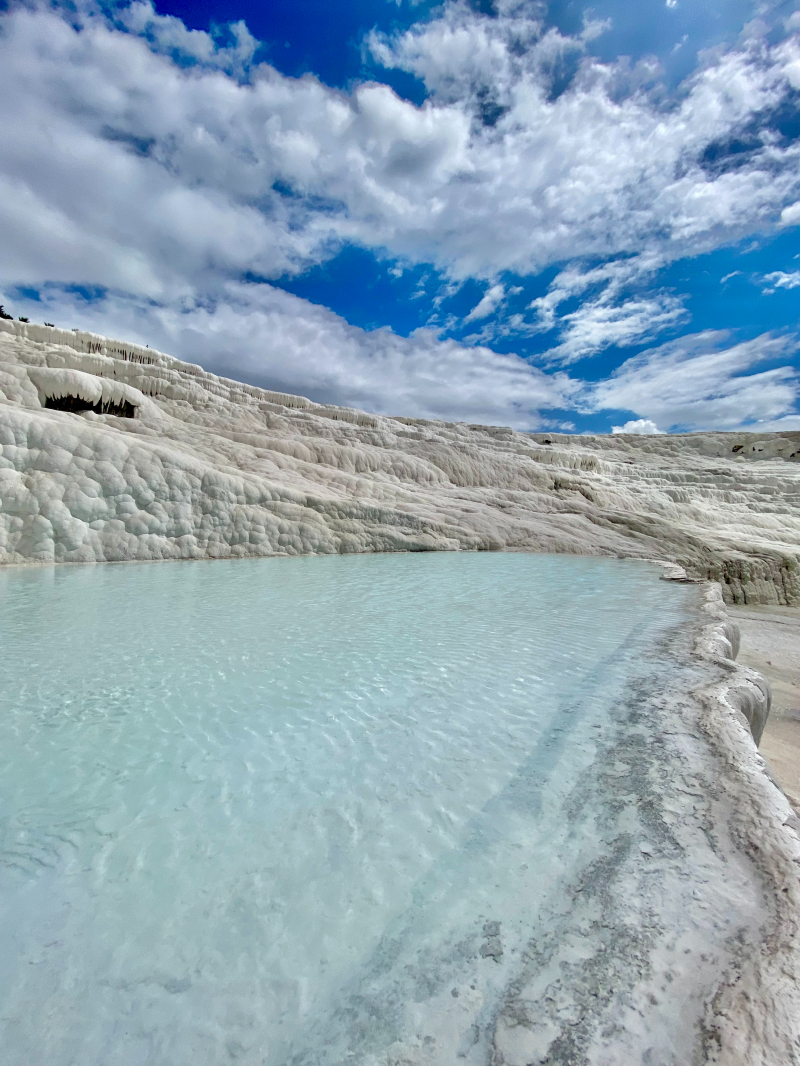Cotton Castle
If you travel to the southwest part of Denizli province in Turkey, you’ll find a distinct structure dominating the landscape. Pamukkale is a complex of seventeen naturally occurring thermal pools constructed in the shape of steps on the slope of a steep hill. Pamukkale is Turkish meaning "cotton castle." The temperature of a pool can fluctuate from a comfortable 95 degrees to boiling. The "cotton" component of their name refers to their pristine white tone, which makes them sparkle under the right lighting.
The "cotton castle," though it appears to be man-made, is actually the result of thousands, even millions, of years of natural geological processes, which makes it to be one of the most bizarre geological features of the Earth. A significant amount of calcium carbonate is left behind as the hot spring water retreats. Travertine is a white stone that hardens over time and gives Pamukkale its distinctive appearance.
Pamukkale was a holy city called Hierapolis long before it was a cotton fortress. Ancient Greek remains that date back more than 2,000 years surround the stunning waters. Additionally, there are rumors of odd, occasionally sinister tales buried within the ruins of that city.
Location: Denizli Province, Turkey











